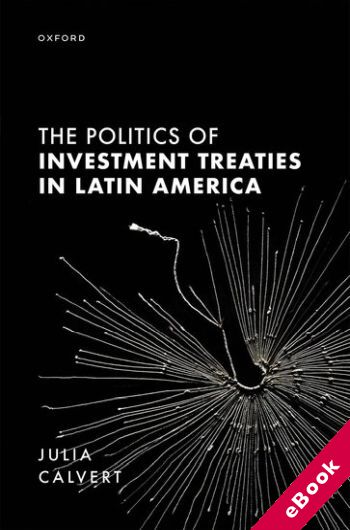
The device(s) you use to access the eBook content must be authorized with an Adobe ID before you download the product otherwise it will fail to register correctly.
For further information see https://www.wildy.com/ebook-formats
Once the order is confirmed an automated e-mail will be sent to you to allow you to download the eBook.
All eBooks are supplied firm sale and cannot be returned. If you believe there is a fault with your eBook then contact us on ebooks@wildy.com and we will help in resolving the issue. This does not affect your statutory rights.
International investment law is at a crossroads. Civil society groups, prominent think tanks, and international organisations are calling for widespread reform. At the centre of controversy are international investment agreements (IIAs) and investor-state dispute settlement (ISDS). Over 1,000 legal claims have been brought by foreign investors under IIAs since the mid-1990s, resulting in multi-million dollar fines imposed against governments for policies related to the environment, natural resource governance, and access to basic services among other areas of public concern. Governments targeted by investor claims are pursuing a variety of reforms that range from the incremental to paradigm-shifting. These different responses raise important questions about the politics of infringement and reform: Why do governments infringe on IIAs despite the costs of doing so? Why do some governments heavily targeted by investor claims pursue more substantive reforms than others?
This book provides a timely examination of infringement and reform in Latin America, where governments felt the sting of investor claims sooner and with greater frequency than in other regions. It focuses on Peru, Argentina, and Ecuador, countries that responded very differently to waves of investor claims. Based on interviews with government officials, and international lawyers as well as an extensive analysis of legal transcripts, detailed case study chapters examine the conditions that prompted investor claims and the factors that inform country's reform agendas. In doing so, the book illustrates the conditions under which IIAs constrain state behaviour and how different belief systems produce different responses to external pressures for treaty compliance.